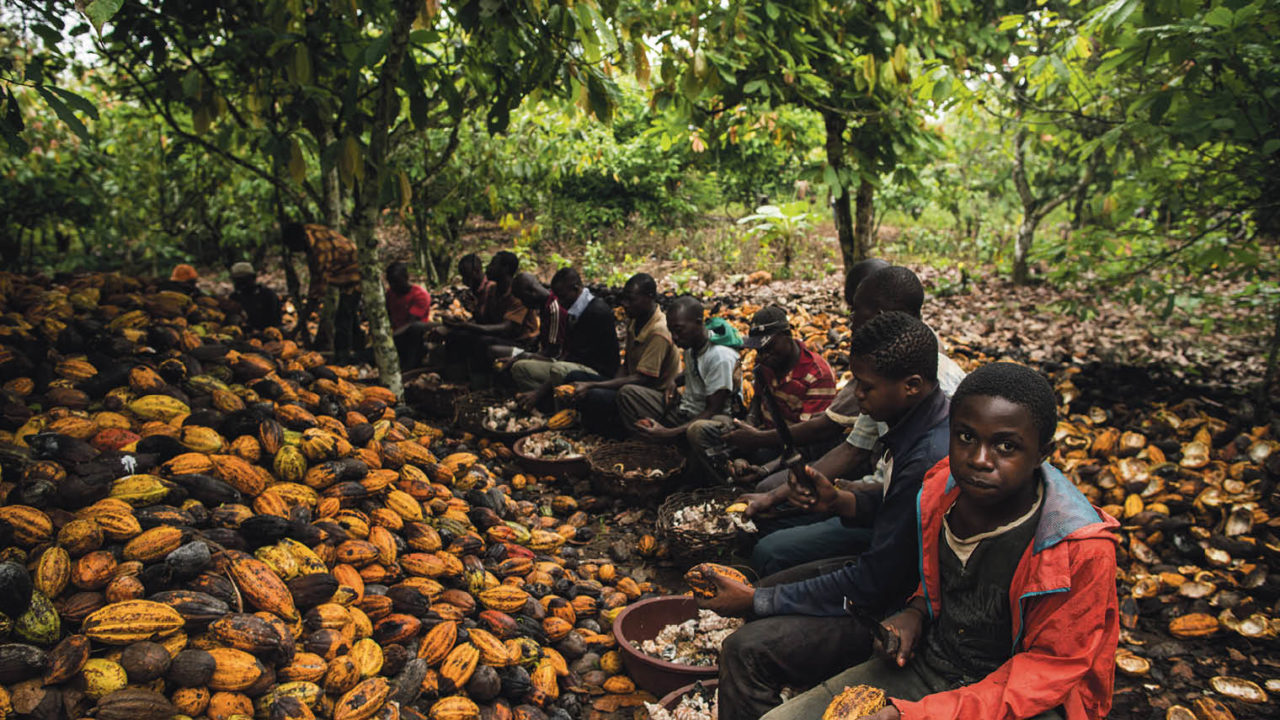Cocoa is promoted as an essential healthy ingredient for everyone regardless of their condition and diet. Chocolate is one of the most favored snacks globally purchased in gigantic amounts, taking a significant part in the Foodservice industry. However, the sustainability of the production is questionable since cocoa farming harms the economy, society, and environment. I chose to study this issue since the society often does not perceive the chocolate manufacturing as a threat to the world in several areas. It is critical to raise the awareness among consumers and officials about the process. First, cocoa cultivating is an exhausting work interaction where the financial feasibility of this harvest is only one of the difficulties. Over two decades ago, proof of children working for the cocoa–delivering area of Africa became known (le119x, 2019). While any type of child labor is inadmissible, this review shows there is something else to the issue of youngster work than the simply improper maltreatment of children.
The work of a minor in the cocoa cultivating area is a financial issue. Cocoa farmers have come to depend on help from their youngsters as free work to get the little earning from harvesting (le119x, 2019). While cocoa cultivating requires concentrated work, cocoa does not procure much income (O’Donnel, 2019). Cocoa creation is overwhelmed by a great many smallholder landowners worldwide. A farmer’s income each year is an additional factor because of contrasts in yearly yields and costs. The profits and costs are dependent upon ecological factors like precipitation, temperature, and harvest illness. On that account, cocoa exporters are helpless against financial fluctuations.

Deforestation is a developing danger in specific spaces because of infringement on forests and ensured regions. The Ivory Coast, the biggest exporter of, has lost 80% of its woods in the last few years (O’Donnel, 2019). Furthermore, the backwoods being cleared for cacao cultivating are the ones that will quite often be the best carbon sinks and wellsprings of biodiversity (O’Donnel, 2019). Subsequently, chocolate is one of the most exceedingly terrible food sources one can eat as far as ozone-depleting substance discharges (Schreiber, 2021). The utilization of pesticides and compound manures is advanced in cocoa development, but an absence of information prompts abuse of the chemicals (Schreiber, 2021). Hence, rather than expanding ranchers’ incomes, current cocoa cultivating practices can cause lower yields and mischief the climate.
The public authority needs to foster an arrangement to restore wild lands and make a model for maintainable cocoa creation close by different trees. The rebuilding of regions debased through cocoa creation as a fundamental necessity for a and profitable food industry. For example, the concealing species, avocado, or hardwood trees, can be a different kind of revenue. Farmers may establish grass or bushes to assist with keeping the dirt solid and keep bugs under control. It is important to assist families with keeping youngsters in school rather than working at cocoa ranches.
This topic is of current interest because there is a huge demand for chocolate in developed and developing countries. Still, the sustainability of the item production does not meet the standards. The farms harvesting cocoa beans do not get substantial returns. Moreover, young children work in those farms instead of obtaining a decent education in schools. Notwithstanding cacao-related deforestation expanding emanations, nations where cocoa is delivered are now seeing the outcomes of environmental change. As a result, I view chocolate manufacturing as an emerging topic since this is the area where people do not realize the drawbacks. The food item is loved by many, and they want to reach the maximum export of chocolate. Despite this, it is critical to consider the sustainable ways to obtain cocoa beans without risks to the financial stability of the farmers, children’s wellbeing, and the forests’ ecosystem.
References
Balch, O. (2020). Child labour: The dark truth behind chocolate production [Online Image]. Raconteur. Web.
le119x. (2019). Child Labor in Ivorian Cocoa Production: An Economic Problem. Chocolate Class. Web.
O’Donnel, K. (2019). Improving the sustainability of cocoa grown in West Africa. World Cocoa Foundation. Web.
Schreiber, M. (2021). The challenge of sustainable chocolate. The New Republic. Web.